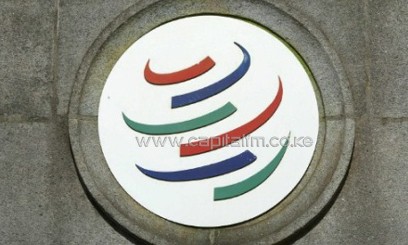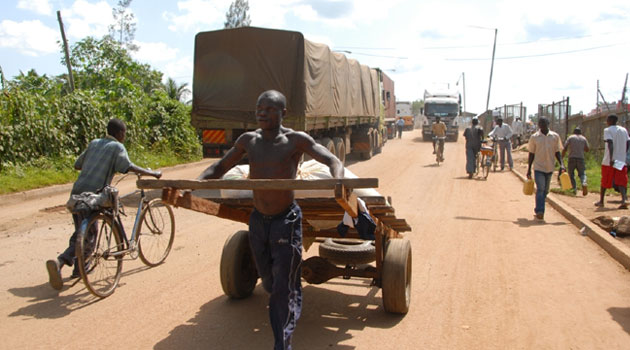
WTO logo/FILE
GENEVA, Apr 30 – As he braces for the final round of the World Trade Organisation leadership race, Brazilian candidate Roberto Azevedo is convinced he is the man to put global commerce’s rule-setting body back on track.
In an interview with AFP before Wednesday’s start of the contest with Mexican rival Herminio Blanco, Azevedo underlined the extent to which global trade talks were bogged down.
“The multilateral trading system is weakened by a complete paralysis in the negotiations,” said Azevedo, who has been Brazil’s ambassador to the WTO since 2008 and hopes to be named its new director general as early as May 7.
“But the thing that is important to bear in mind is that it’s not only about negotiations. It’s about the system,” he explained.
“It’s about making the system respond to the realities of today’s world… The only way to do this is to promote trade and trade liberalisation as an important component of development policies,” he added.
“We’re not going to do that unless we unclog the system,” he insisted.
Created in 1995, the WTO aims to advance global trade talks on opening markets and removing trade barriers — including subsidies, excessive taxes and regulations — in a drive to spur the global economy.
The stated goal of the WTO’s “Doha round”, launched at a summit in Qatar in 2001, is to deploy global commerce to develop poorer economies.
But the WTO’s 159 member nations repeatedly have clashed over the give and take needed to reach a deal.
The major splits have been between China, the European Union, India and the United States, and there are fears that a WTO summit in December in Bali could yet again fail to deliver.
“We started Doha trying to sell to our constituencies the idea that the round was a good thing for us and that a lot of things were going to materialise,” said Azevedo.
“And that benchmark clearly proved not to be attainable. We have to go back to the drawing board, without ignoring the mandate… What I suggest is a modulation of the ambition, where you go further where you can go further, and not so deep where things are very hard.”
On paper, Mexico’s Blanco is the heavyweight in the race to succeed Frenchman Pascal Lamy, a former EU trade chief elected WTO leader in 2005 and 2009.
Blanco, a 62-year-old economist, was Mexico’s negotiator for the 1994 North American Free Trade Agreement, and runs an international trade consultancy.
But Azevedo, 55, reckons his own diplomatic record in trade in both Brasilia and Geneva is crucial.
“At the negotiating level, you need a director general who can roll up his sleeves, sit down with members and engage with them on an equal footing, and you need the same person to be doing the political articulation of the support that is needed to make the system move,” he said.
“To do that, you need to know the system. And I think that’s the most distinguishing trait between my candidacy and the candidacy of Mr. Blanco, which is that I come from within,” he added.
The WTO’s leader is not formally elected, but picked by consensus.
Those who fell at the first hurdle earlier this month were from Kenya, Ghana, Jordan and Costa Rica, while Indonesia, South Korea and New Zealand stumbled last week.
Azevedo, who pointed to his broad support from rich, emerging and poor nations alike, pledged that if he took the helm on September 1, he would use his mandate actively.
“In the WTO today, you don’t have any low-hanging fruit. You have to go up the tree, grab the fruit and bring it down. And if you don’t know the system, and don’t know the trees, you’re not going to get the fruit,” he said.
While an experienced negotiator and consensus-builder, his insider status could play against him.
Before becoming ambassador, he was Brazil’s chief litigator in a raft of WTO disputes, for example with the EU and US over their subsidies for aircraft makers.
But he insisted that as WTO leader, he would not be Brasilia’s plaything.
“If I’m elected, I’m not going to be there defending Brazilian interests or anything of the kind, or Brazilian trade policy,” he said.
He recognised, however, the symbolism of an emerging nation winning the post. Apart from Thailand in 2002-2005, in the wake of New Zealand, the WTO’s leaders have all been European.
“I think members in general are more trusting of a system where they think they can be represented at the top, in terms of geography and level of development,” he said.


































